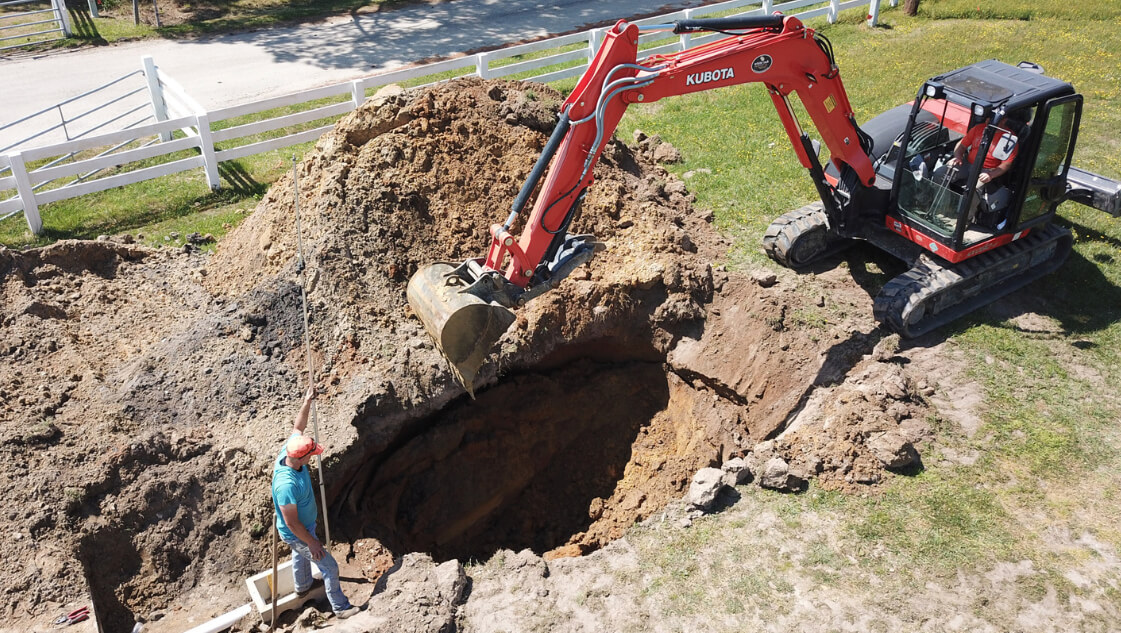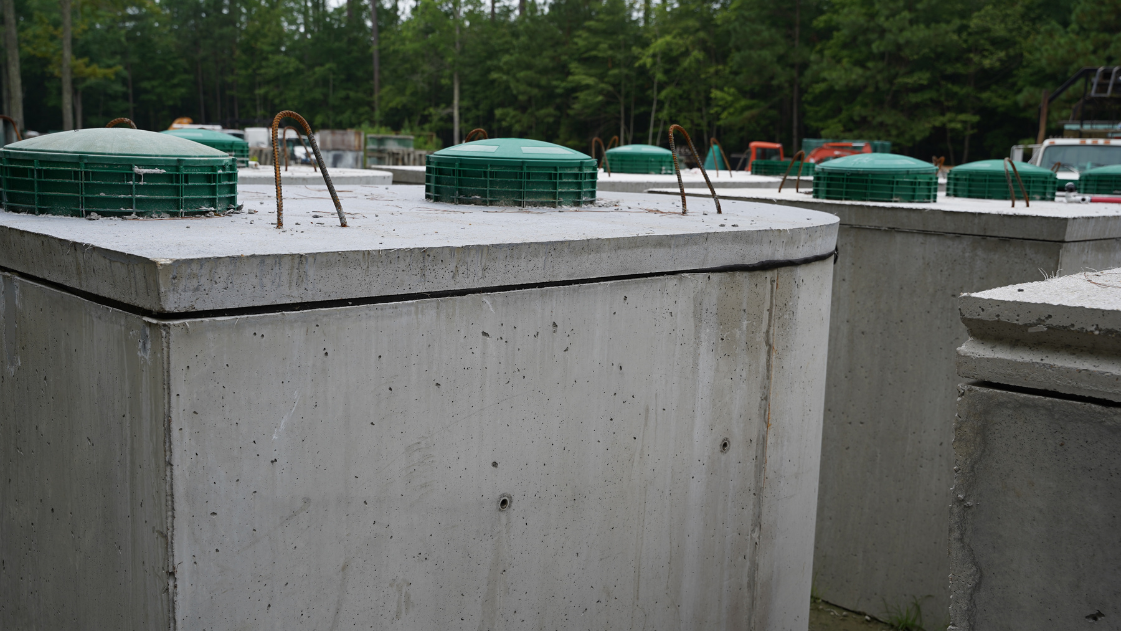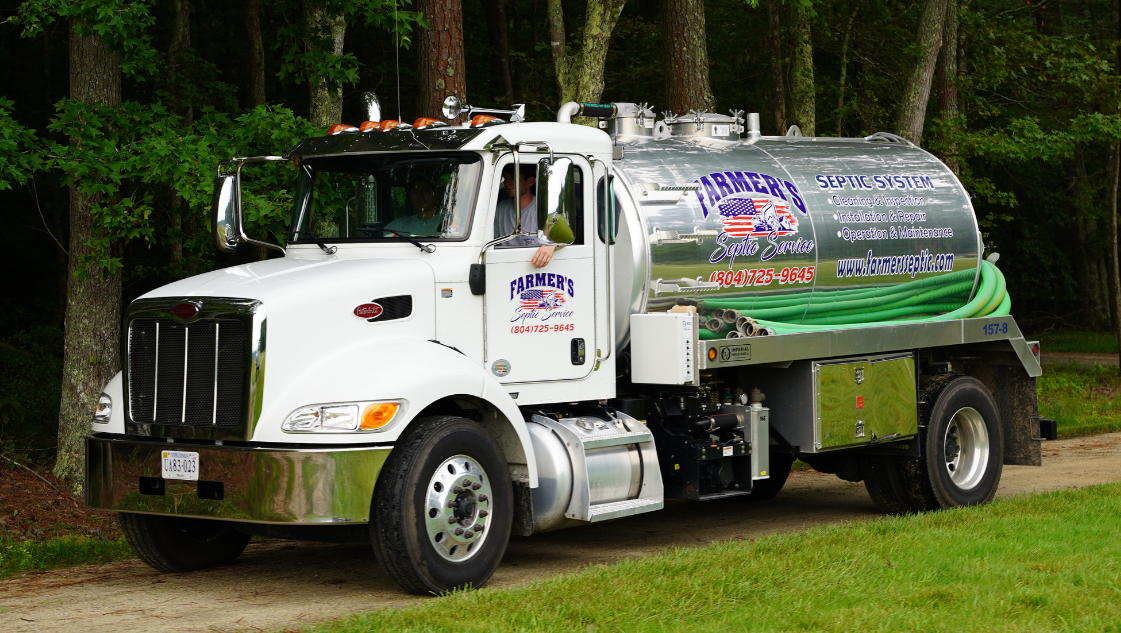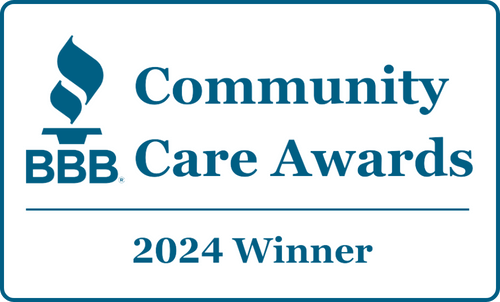
When it comes to septic tank installation in Mathews, Gloucester, and Middlesex, Virginia, trust the experts at Farmer's Septic to get the job done right.
We recognize the unique requirements and complexities involved in handling wastewater for both residential properties and commercial establishments in the Chesapeake Bay area.
With years of experience and a dedication to excellence, we bring our expertise to every project. From site evaluation and design to navigating permits and regulations, we ensure a seamless process tailored to your specific needs. We are also equipped with various Clearstream ATU Models. With Farmer's Septic, your septic system installation will be handled with precision, efficiency, and a commitment to your satisfaction.
What is A Septic System?
A septic system, also known as an onsite wastewater treatment system, is a self-contained system designed to treat and dispose of wastewater from homes, buildings, or properties that are not connected to a centralized sewer system. Commonly found in rural or suburban areas, it provides a decentralized solution for managing and treating wastewater on-site.
The primary purpose of a septic system is to safely and efficiently treat wastewater generated from toilets, sinks, showers, laundry, and other household activities. It helps to:
- Remove contaminants, pathogens, and pollutants from the wastewater before it is released back into the environment
- Helps protect public health, prevent water pollution, and maintain the cleanliness and hygiene of the property and surrounding areas
What’s Involved in A Septic Tank Installation?

Site Evaluation and Design:
In the process of installing a septic system, site evaluation and design play a crucial role in determining the most suitable septic system for your property. At Farmer's Septic, we conduct a comprehensive site evaluation to assess various factors that influence the system's design.
Our expertise comes into play as we analyze the soil type, topography, water table, and other pertinent factors. By considering these elements, we can determine the optimal septic system design that ensures efficient wastewater treatment and disposal. We are dedicated to providing you with transparent information and addressing any questions or concerns you may have regarding the site evaluation process.
Permitting and Regulations:
We’ll help to take care of permits as needed and abide by local codes and regulations involved in septic tank installation. Whether it's acquiring permits or ensuring compliance, we've got you covered. As residents of the Chesapeake Bay area, we are well-versed in the environmental concerns specific to our region.
Count on us to navigate the intricacies and safeguard the integrity of our cherished waterways.


System Sizing:
Determining the appropriate size of the system involves considering several factors related to your household's wastewater flow.
We assess the number of bedrooms, occupants, and expected water usage patterns. After carefully analyzing these variables, we can estimate the wastewater volume that the septic system needs to handle effectively.
Drainfield Options:
Whether it's a conventional gravity system, a pressure distribution system, or alternative options like sand mounds or aerobic treatment units, we make sure the chosen drainfield design aligns with your property's specific needs and optimizes the functionality of your septic system.
With Farmer's Septic, you can rely on us to guide you towards the most appropriate drainfield options for a successful septic system installation.


Maintenance:
Our commitment to you extends beyond installation. At Farmer's Septic, we prioritize the long-term performance of your septic system.
Regular septic tank maintenance and proper care are key to its optimal functionality. Check out our Operation & Maintenance Plans.
Grading & Seeding:
After the septic system installation is complete, we take the extra steps of grading and seeding the area to ensure a visually appealing and functional result. Grading involves leveling the soil surface around the septic system components, such as the drainfield and septic tank.
Seeding involves the application of grass seed or vegetation to restore the appearance of the area disturbed during the installation process. This attention to detail not only enhances the aesthetics of your property but also aids in erosion control and the overall integration of the septic system into the surrounding environment.

Why Farmer’s Septic is the Right Choice

When it comes to septic system installation, choosing the right provider is essential, and Farmer's Septic stands out as the ideal choice.
As qualified and licensed installers with over 36 years of experience, we’re equipped to handle your septic system installation needs with precision and professionalism.
Don’t hesitate to send us your questions related to septic system installation. If you have concerns related to cost, financing, timelines, or any other specific inquiries, we’ll be more than happy to help.
Commonly Asked Questions:
An alternative septic system, also known as an advanced or innovative septic system, is a type of wastewater treatment system that goes beyond traditional septic systems in terms of design and technology. Alternative septic systems are typically used when a property's soil or site conditions are not suitable for a conventional septic system or when there is a need for enhanced treatment of wastewater.
Generally, alternative septic systems incorporate additional components or processes to improve the treatment efficiency and reduce the environmental impact of wastewater disposal. These systems may include components like pretreatment units, advanced filtration systems, aerobic treatment units, disinfection units, or specialized media for enhanced treatment. The wastewater from the household flows into the primary tank, where solid waste is separated and settles at the bottom. The partially clarified wastewater then enters the alternative treatment component, where it undergoes further treatment. This may involve additional filtration, aeration, or disinfection processes to remove or neutralize contaminants. Finally, the treated wastewater is either discharged into the soil through a drainfield or used for irrigation purposes, depending on the system design and local regulations.
Additional Alternative Septic System Facts:
- Provide higher treatment efficiency, reduce the risk of contamination, and address specific site challenges
- Particularly beneficial in areas with poor soil quality, high water tables, environmentally sensitive locations, or locations where there are stricter regulatory requirements for wastewater treatment
A conventional septic system is a common and traditional method of wastewater treatment and disposal for residential and small-scale commercial properties. It consists of a simple yet effective system that relies on natural biological processes to treat and dispose of wastewater.
In a conventional septic system, wastewater from toilets, sinks, showers, and other household drains flows into an underground septic tank. The septic tank is typically made of concrete, fiberglass, or plastic and acts as a primary treatment chamber. Inside the tank, solid waste settles to the bottom, forming a layer of sludge, while oils and grease float to the top, creating a layer of scum. The remaining liquid, known as effluent, flows out of the tank into the drainfield or leach field.
The drainfield consists of a network of perforated pipes buried in trenches or beds in the soil. The effluent from the septic tank is distributed through these pipes, allowing it to slowly seep into the soil. As the effluent percolates through the soil, it undergoes further treatment through a combination of filtration, microbial action, and natural processes. The soil acts as a natural filter, removing harmful bacteria, pathogens, and some contaminants, while allowing the wastewater to be safely absorbed and assimilated into the environment.
Additional Conventional Septic System Facts:
- Cost-effective, reliable, and suitable for many properties with appropriate soil conditions
- Rely on gravity and the natural processes occurring in the septic tank and drainfield to treat and dispose of wastewater
- Regular maintenance, such as periodic pumping of the septic tank and responsible water usage, is crucial to ensure the optimal functioning and longevity of a conventional septic system
The cost to install a septic system can vary widely based on several factors. Factors influencing the cost include the size and type of the system, soil conditions, local regulations, labor costs, and geographical location. We’d be happy to discuss your needs and ultimately share an estimate with you. Give us a call at (804) 725-9645.




